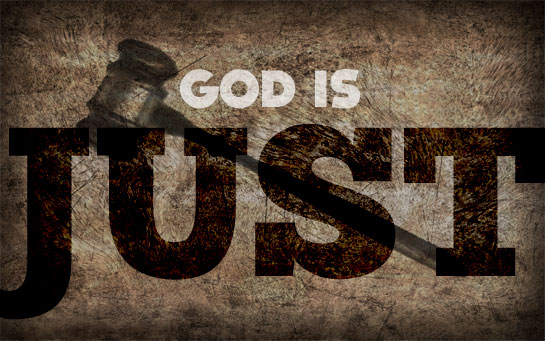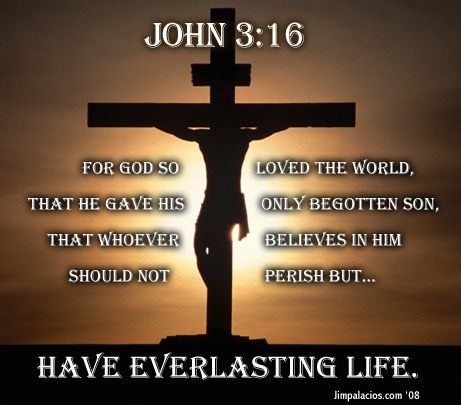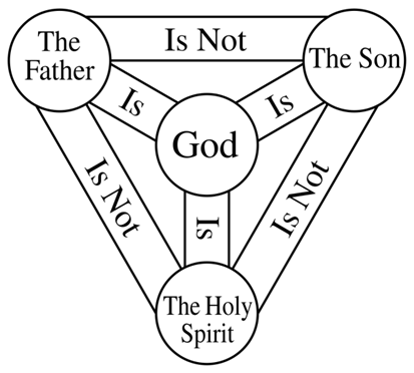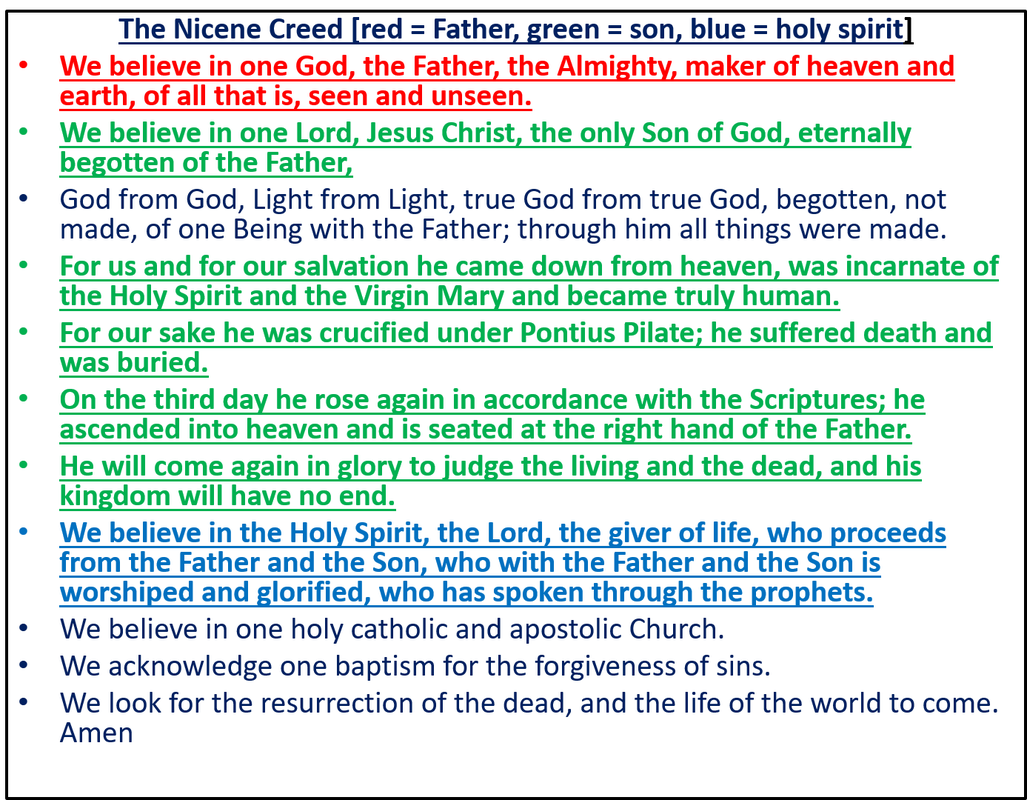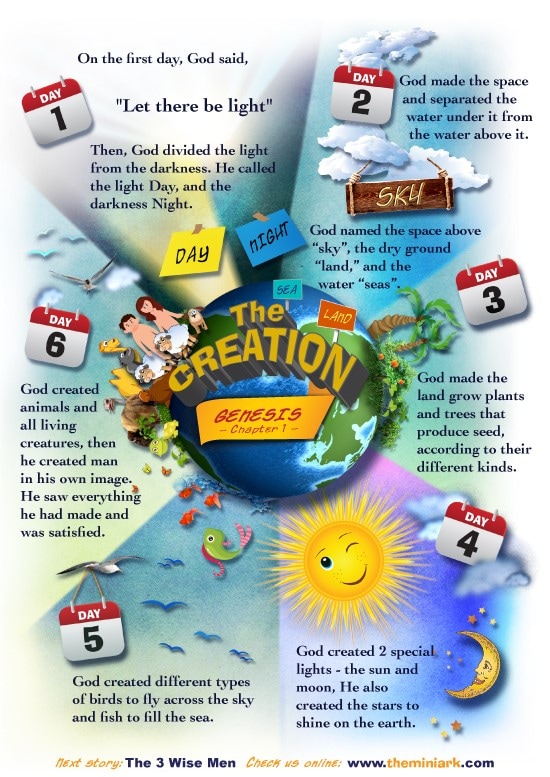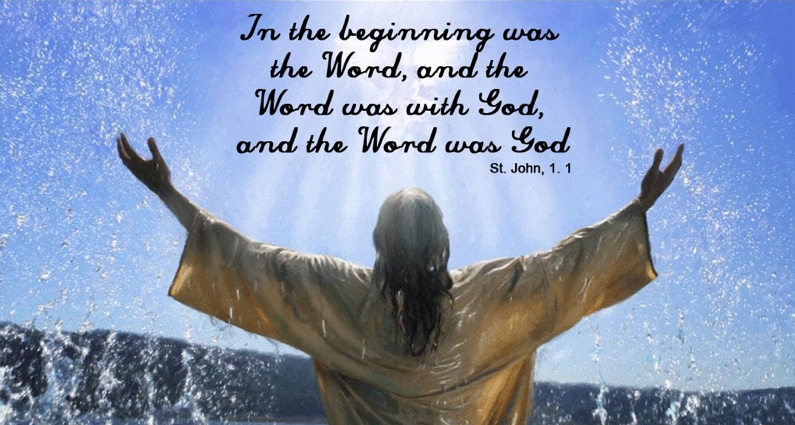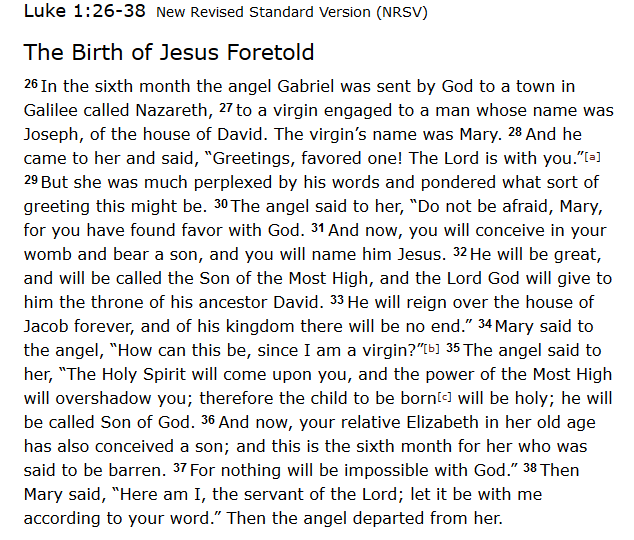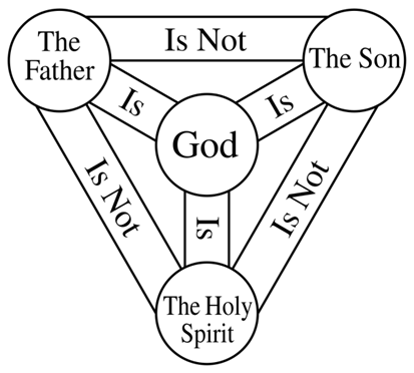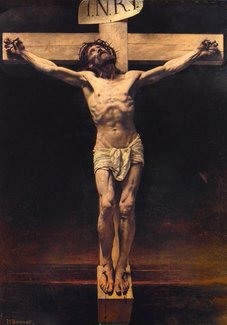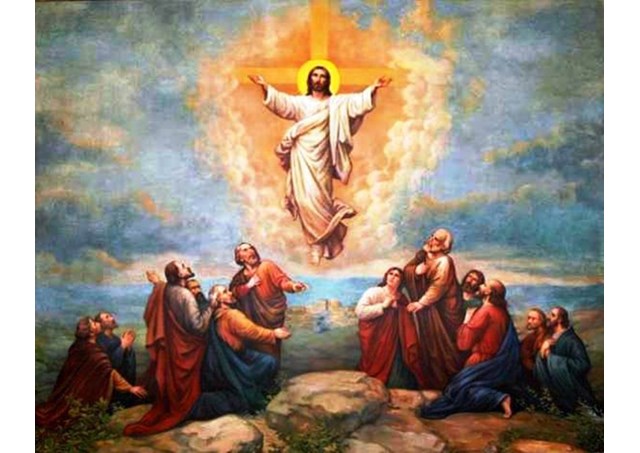Christian Denominations - ReligionFacts
Divisions within Christianity, known as "denominations," number into the thousands by some counts. Nearly all Christian denominations have their roots in the Reformation, when some Christians began to question the Church's long-standing firm control over doctrine and practice.
|
|
|
Christianity: Beliefs and teachings.
The word 'Christian' literally means 'follower of Christ', so central to any study of Christianity is the understanding of the main key Christian beliefs about Jesus. The most important beliefs about Jesus include his incarnation, his crucifixion and death, his ressurection and his ascension to heaven.
Lesson One: The nature of God.
Christians believe that God is totally different from anything in the universe and ultimately beyond human understanding. However, they believe that He has revealed something of Himself through nature, the insights of the Bible and personal experience. From this, Christians believe that God has many attributes (qualities) and can describe these.
|
'Omnipotence' means 'all-powerful'. This is sometimes misunderstood as meaning that God can do absolutely anything. However, by omnipotence most Christians mean that God can do anything that it makes sense for God to do. Christians do mean that God's power is immense - immeasurable even.
For Christians, God's omnipotence can be seen in many ways, for example:
Relevant Teachings
God created the world from nothing in seven days – Genesis ‘I pray that …you may know … his incomparably great power for us who believe. That power is the same as the mighty strength he exerted when he raised Christ from the dead …’(Ephesians 1:18-20) ‘Great is our Lord and mighty in power.’ (Psalm 147:5) I am the Lord, the Maker of all things, who stretches out the heavens, who spreads out the earth by self.’ (Isaiah 44:24) I can do all this through him who gives me strength,’ (Philippians 4:13) Christians believe that God is all-loving. When referring to God's love the New Testament writers used the word agape, which refers to a self-giving, self-sacrificial love. Christians see Jesus' death on the cross as the supreme example of that love. 'For God so loved the world that he gave his only Son" (John 3:16), They believe this showed love because the sacrifice of Jesus then allowed human beings the chance to enter heaven in the afterlife. Many people find it hard to believe that there is an all-loving God when they see so much sufferng in the world, When they experience it themselves, some lose any belief that they had in God, as the God they believed in would have helped them. Suffering actually leads some Christians to feel closed to God: they feel that God is sharing their pain and giving them strength to cope.
|
There are many stories about God's omnipotence in the Bible. The Creation, the flood and the ten plagues are just three of them.
In St Mark's Gospel there is a story of Jesus and his disciples out on Lake Galilee in a boat. Sudden storms are common on this lake and can be very dangerous, though they end as suddenly as they begin. On this occassion, while Jesus was sleeping. a violent storm blew up and the disciples feared the boat would sink. They woke Jesus saying "Teacher, do you not care if we drown?" Jesus got up and spoke to the wind and waves. "Quiet! Be still" immediately the storm ended and disciples were amazed at his power. Some Christians think that:
Much of Jesus' teaching is about the love of God, which is universal and unconditional. Universal which means for everyone everywhere, unconditional means without conditions (regardless of what they have done). This is why Christians believe that even those who do the most evil things are still loved by God and can still come back to God to be forgiven.
Jesus told the parable of the Prodigal Son, illustrating his love (Luke 15: 11 - 32). A man has two sons, one claims his inheritance and leaves to waste it all. He returns to ask for a job on his father's farm, and is welcomed home. His father has forgiven him. This does not mean he gets another inheritance - everything now belongs to the elder son - but he does get a fresh start because of his fathers love. |
Lesson Two: The oneness of God and the Trinity.
|
Christians believe in monotheism - the belief that God is one. This belief is developed in the Trinity. The concept of the Trinity put in simple terms is the idea that there are three 'persons' all of which are God (God the Father, God the Son and God the Holy Spirit.)
God is not a physical being, although one 'person' of the Trinity - Jesus (the Son) - did have a physical presence in history. It may be best to think of these three 'persons' as non-physical elements or realities. They are all God and so, within the Trinity, the idea of the Oneness of God should not be forgotten. God can be seen as one in three and three in one, all at the same time. The Trinity describes all three of the following at once:
The Lord prayer begins with the words: "our Father in heaven" God the father is believed to be the creator of earth and all living things on it. As creator of life, he acts as a good father would towards his children. He is believed to be all powerful (omnipotent), all loving (omnibenevolent), all knowing (omniscient) and present everywhere (omnipresent). God the Son The second person of the trinity is referred to as the Son of God and became incarnate on earth and in history through Jesus. Christians believe Jesus was both fully human and fully divine at all times. God the Holy Spirit Christians believe that once Jesus had left the earth, God sent the Holy Spirit to influence, guide and sustain the earth and all life on it. The Holy Spirit is believed to be the unseen power of God at work in the world in the past, present and future. |
"I and the Father are one.” - John 10:30
"And I will ask the Father, and he will give you another Helper, to be with you forever, even the Spirit of truth, whom the world cannot receive, because it neither sees him nor knows him. You know him, for he dwells with you and will be in you." - John 14: 16 - 17. |
Lesson Three: Creation
|
Genesis 1:1-3
Christians believe that God created the earth and all living things on the earth. One story about the creation of the world is found in the first book of Genesis in Chapter 1. Many Christians believe that although it may not be scientifically accurate, this account contains religious truth, explaining that the process of creation was God's choice and that God designed and caused it to happen. The book of Genesis begins "' In the beginning, God created the heavens and the earth. Now the earth was formless and empty, darkness was over the surface of the deep, and the Spirit of God was hovering over the waters. And God said,'Let there be light; and there was light" (Genesis 1:1-3) The story continues by giving an account of how the universe was created, how the earth was made fit for life and finally how God created life, including humans, who were the last of God's creations. This is believed to have happened in six periods of time (days) after which God rested. While the whole story is interesting, for Christians the most important part is what is included in the quotation from the very beginning of the story (above), together with the belief that everything was created 'good'. "God saw everything that he had made, and indeed, it was very good." (Genesis 1:31) Many Christians interpret the story in Genesis 1 as a way of describing the creation of the world by God. Not all Christians believe that God made the world in literally six days (non-literal). However, the belief that God is the creator, a role that continues today with the start of each new life, is central to their faith. It is interesting to note the reference to 'the Spirit of God' hovering over the waters. It could be argued that even though God the Father is referred to as the creator, the Holy Spirit, the third person of the Trinity, was already active in what has become the world. This perhaps reinforces the Oneness of God rather than the three 'persons' of the Trinity . John 1:1-3 No one knows exactly when the story in Genesis 1 was first written but experts believe it to be around 500Bc. Around 600 years later, in the New Testament of the Bible, John opened his gospel with the following passage: " In the beginning was the Word, and the Word was with God, and the Word was God. He was with God in the beginning. Through him all things were made; without him nothing was made that has been made." (John 1:1-3) Most experts are now agreed that 'the Word' refers to God the Son, who entered history as Jesus. This shows that not only was the Holy Spirit involved in the Creation, but that the Son was as well. Thus the whole of the Trinity were involved and have existed since the beginning. Christians believe that the three 'persons' of the Trinity are not part of a chain with God the Son replacing God the Father and in turn being replaced by the Holy Spirit. As explained on pages 12-13, they all exist alongside each other within the same one God and always have done. As the passage on this page was written as an introduction to John's account of the life and work of Jesus, it shows that he clearly believed that Jesus was no ordinary man, not even just a special man, but God the Son, and therefore within the Oneness of God. The references to the creation of the earth in the Bible make it clear to believers that the world was made by God. As mere humans, this is something our minds cannot fully comprehend, and is part of the mystery of God. Christians have used the concept of the Trinity to help them to understand that this is a divine mystery. |
Lesson Four: The incarnation of Jesus (Son of God)
|
The incarnation
Many people in the world today know the Christmas story, the account of what happened when Jesus was born. Even though some of the details of the story we traditionally hear at Christmas may not be historically accurate, it does express basic Christian truths. We don't know whether people who lived at the time of Jesus, even many of those who followed him and believed that he was teaching the truth, knew anything about the circumstances of his birth. He is often referred to as Jesus from Nazareth (the town in which he grew up) but there is little mention of Bethlehem, where he was born, apart from in stories about his birth. For Christians, the belief that Jesus was God in human form is more important than the details of his birth. The gospels of Matthew and Luke explain quite clearly that Mary, Jesus' mother, did not conceive Jesus sexually. She was engaged to Joseph who took Jesus as his son, even though he knew he was not his natural father. An angel appears to Mary in Luke's Gospel (Luke 1: 26-38) and to Joseph in Matthew's Gospel (Matt 1: 20-21). In both cases the angel explains that the conception was no ordinary conception and that the child would be no ordinary child. "This is how the birth of Jesus the Messiah came about: His mother Mary was pledged to be married to Joseph, but before they came together, she was found to be pregnant through the Holy Spirit." (Matt 1:18) Although many people question the virgin conception because it is not a natural thing to happen and is unlikely to have happened since, for Christians it is very important. It gives evidence for the belief, shared by all Christians, that Jesus is incarnate-made flesh in human form, fully God yet fully human and thus God the Son as part of the Trinity. It is a fundamental Christian belief that through the incarnation, God showed himself as a human being for around 30 years . Son of God Instead of telling the story of Jesus' conception and birth in his gospel, John is more interested in the meaning of it: ''The Word became flesh and made his dwelling among us. '' (John 7:7 4) Christians refer to Jesus as the Christ. It comes from the Greek word, Christos, which means 'anointed one', which in turn is a translation of the Hebrew word mashiach (Messiah). The Jews developed an expectation well before Jesus was born that God would send a special leader, the Messiah, to save his people from tyranny and establish an age of global peace. When Jesus was baptised, a voice from Heaven said 'You are my Son' (Mark 1: 11). On one occasion, the disciple Peter referred to Jesus as the Christ. During this conversation at Caesarea Philippi (Mark 8:27-30) Jesus immediately warned the disciples that they should not use this term for him, possibly because his opponents would have arrested him for blasphemy (claiming to be God). The gospel writers do use it in their writings but it should be remembered that they were writing some years later. According to one of the gospel accounts, Jesus later accepted its use for himself at his trial when he was asked a direct question: '' Again the high priest asked him,'Are you the Christ, the Son of the Blessed One?"l am; said Jesus. '' (Mark 74: 67b-62a) '' You may believe that Jesus is the Messiah, the Son of God, and that by believing you may have life in his name. '' (John 27:37) '' When Jesus was baptised, a voice from Heaven said 'You are my Son' '' (Mark 7:7 7) |
Lesson Five: Crucifixion
|
One of the most detailed stories from the whole of Jesus' life is the account of how he died. He was sentenced to death by Pontius Pilate, the Roman Governor, and his death was to be by crucifixion.
Crucifixion was a particular form of execution favoured by the Romans. It consisted of the victim being laid down onto a large wooden cross, attached to it using nails, rope or sometimes both and then having the cross lifted upright. Once the cross was upright in the ground, the victim waited for death, usually by asphyxiation (not being able to breathe). Some managed to resist death for a couple of days whilst others lasted a matter of a few hours. All of this happened in public. Jesus was crucified in a similar way to others, including the two men crucified on either side of him. Even though Christians believe that Jesus was the Son of God, it does not mean that he was in some way spared the pain and horror of his crucifixion. Not only was he fully God, he was also fully human, and had the same feelings as anybody else. However, according to Luke's version of the story, possibly told to him by people who were there, Jesus forgave the guards who crucified him because they did not realise the significance of what was going on. He also had conversations with the two men who were crucified with him, promising one of them that soon he would join God in paradise. Finally, after around six hours on the cross: '' Jesus called out with a loud voice,' Father, into your hands I commit my spirit: When he had said this, he breathed his last. '' (Luke 23:46) One of the Roman centurions in charge of the crucifixion praised God and acknowledged that Jesus had been a righteous man who had done nothing to deserve being crucified. According to Mark 15:39, he said: '' Surely this man was the Son of God! '' (Mark 15:39) The impact of the Crucifixion for Christians. There are several ways in which the crucifixion affects Christians today. It gives them confidence that if they accept Jesus' sacrifice, sin can no longer destroy their lives because God forgives those who faithfully ask for forgiveness. They believe that suffering is a part of life, just as it was a part of Jesus' life and that, having also experienced it, God understands what the sufferer is going through. Jesus is buried Once Jesus was dead, and the Roman guards had made sure that he was, a man called Joseph from Arimathea asked for the body of Jesus so he could bury it. Joseph was a member of the Council that had pressed for Jesus to be crucified but he had himself disagreed with it. As there was insufficient time to bury Jesus properly because the Sabbath day of rest and religious observance was due to start, he laid the body of Jesus in a cave-like tomb and rolled a large stone to block the entrance. |
Lesson Five: Ressurection
|
According to the accounts of Jesus' burial in the New Testament, he was placed in a tomb late on Friday afternoon. We know this because it states that Shabbat (the Sabbath) was due to begin and Jews keep Shabbat at sunset every Friday. There was no time to anoint his body and bury him properly, so he was laid in the cave-like tomb. How long he remained there is unclear because early on the Sunday morning after Shabbat had ended, some of Jesus' female followers went to the tomb to anoint the body and prepare it for proper burial. There are some differences in the gospels as to the identity of these women, although all four name Mary Magdalene as one of them, and according to the Gospel of John she was the only one.
Although other details vary between the four versions of the story, they all make it quite clear that the body of Jesus was nowhere to be found, a fact that was reported to the disciples. Each story mentions the women meeting a man or two men, who may have been angels, who told them that Jesus had risen from the dead and that they should pass the word on to his followers, including the disciples. The belief that Jesus rose from the dead is known as the resurrection and is a key teaching in the Christian faith. For Christians, it is significant evidence of the divine nature of Jesus. For the next few days or weeks, Jesus appeared to several people, including Mary Magdalene and the disciples, telling each that he had risen from the dead as he had predicted to them when he was alive. This ensured the story spread quickly and that there were several different witnesses to the claim that he had risen. |
|
Lesson Six: Ascension
|
Just as the resurrection is a matter of faith and interpretation, so is the ascension. There are other explanations but if Jesus had the special power of God to rise from the dead, it is equally possible that this same power means he was able to leave the earth physically and return to heaven. Only Mark's and Luke's gospels finish off their story by telling their readers that, after meeting his disciples and asking them to carry on his good work, Jesus left them for the last time.
'' When he had led them out to the vicinity of Bethany, he lifted up his hands and blessed them. While he was blessing them, he left them and was taken up into heaven. '' (Luke 24:50-57) The significance of the resurrection and ascension for Christians today.
|
